When Robert F. Kennedy, Jr. decided to run for president, he wrote:
When people ask what motivates me, my answer is always the same … our children.
He called for unity over division. As he said:
We need to remember that there’s no such thing as Republican children or Democratic children. We need to focus less on policies that divide us, and more on the values and dreams we hold in common.
In that campaign, RFK Jr. proposed to “Make America Healthy Again,” which is also a great sentiment. However, it is only meaningful if the policies match the rhetoric.
I applaud RFK Jr. for vowing to address chronic diseases by committing to take steps to revise:
Conflicts of interest standards
Pesticide and other chemical-use standards
Crop subsidies
Fitness standards
RFK Jr.’s nomination to be Secretary of the Department of Health and Human Services (HHS) will be considered by the U.S. Senate this week. If he is confirmed, his status in the Trump Administration presents three fundamental tests:
Will he use the opportunity to truly “Make America Great Again for Children,” or will children be treated as an afterthought or, worse, harmed in federal policymaking and funding?
Will he speak up “more on the values and dreams we hold in common” and be willing to stand up to forces within the Trump Administration who threaten harm to children and seek to divide us?
Will he defend and protect important legacies of the Kennedy family – including Medicaid, the Children’s Health Insurance Program (CHIP), and Head Start — or allow them to be dismantled?
HHS: The Most Consequential Federal Agency for Children
HHS is the single most important federal agency for children’s health and well-being. The Department directly shapes children’s health, education, economic status, safety, and well-being by overseeing:
Medicaid and CHIP, which provide health care to about half of all U.S. children. Kids also make up nearly half of all Medicaid enrollees.
Maternal and child health programs, including those that combat infant mortality and ensure prenatal care.
Mental health and substance abuse services, addressing the escalating youth mental health crisis.
Emergency care services assist the nation’s trauma and emergency care systems to improve life-saving care, including for children.
Pediatric cancer prevention and treatment, address the comprehensive needs of children with cancer which includes prevention, research, and treatment.
Public health programs, which improve the health of communities and individuals and include immunizations, disease surveillance and control, suicide prevention, access to health care, smoking cessation, and more.
Gun violence prevention, which is the leading cause of child deaths.
HHS also plays a critical role in children’s development and economic security by overseeing:
Early childhood programs like Head Start, which lay the foundation for lifelong success.
Child welfare services, ensuring at-risk children receive protection and support from poverty, abuse, and neglect.
Efforts to cut poverty, including efforts to improve Temporary Assistance to Needy Families (TANF), such as promoting the RxKids demonstration in Flint, MI. HHS also partners in encouraging the use of the Child Tax Credit by families.
Child care assistance, helping working families afford care and work.
Refugee resettlement, helping families adjust to living in the U.S.
On child care, for example, RFK Jr. wrote:
I’m delighted that President Trump is taking up the issue of universal child care… A lot of people may more for childcare than for groceries or housing. In fact, universal childcare might actually increase government revenues, because it would add at least a trillion dollars to the economy.
Kennedy is also right to be concerned about the rise in child poverty and the reason why: failure to extend the improved Child Tax Credit of 2021.
With the exception of Medicare (although a small percentage of children do receive Medicare), the voluminous decisions made at HHS disproportionately affect the health and well-being of our nation’s children — determining whether they receive medical care, whether they have access to early education, and whether they grow up healthy and supported.
Trump’s Legacy: A Systematic Attack on Children’s Health and Well-Being
Unfortunately, under the first term of the Trump Administration and the initial days of the new term, children’s health and well-being have been actively undermined:
Medicaid and CHIP were threatened through attempts to cut over $800 billion from the programs through arbitrary limits or caps, which would have been disproportionately applied to children and could have stripped coverage and services from millions of kids.
Infant and maternal mortality rates increased, especially among Black and Indigenous communities, due to cuts in health care access.
The youth mental health crisis spiraled out of control, yet Trump rolled back protections and cut funding for school-based mental health programs and today suicide is now the second-leading caucus of death among children aged 10-14.
Family separation, public charge, and attacks on birthright citizenship traumatized the children of immigrants, threatening their security and future.
Gun violence became the leading cause of death among children, yet common-sense safety measures were not considered or actively discouraged.
These policies weren’t just neglectful, they were harmful — actively making life harder for children and families across the country. For example, Trump proposed hundreds of billions in cuts to Medicaid and CHIP with cuts that would have disproportionately maltreated children (an astounding 31% cut to child health, according to an analysis by Avalere Health). Trump supported cuts in the Graham-Cassidy bill were opposed by the entire child advocacy community.
Moreover, investments in children dropped dramatically during the Trump Administration – from 10.21% of the federal budget at the end of the Obama Administration in 2016 to just 7.64% at the close of the Trump Administration in 2020, a 25% cut.
This decline in investment in children isn’t just policy neglect – it’s a conscious and willful choice.
Furthermore, if not for congressional intervention, the situation would have been far worse. President Trump’s annual budgets repeatedly targeted children for even deeper cuts. In fact, Russell Vought, who was just approved to be the Director of the Office of Management and Budget (OMB) by the Senate on a 53-47 vote, supported much deeper cuts.
In a New Yorker article, Vought was quoted saying:
I get excited about cutting the Department of Health and Human Services, the Department of Education.
These are the two most important agencies focused on the health, education, economic status, safety, and well-being of our nation’s children in the federal budget, and one of them would be led by Kennedy if he is confirmed.
Unfortunately, if past is prologue, Vought, who also worked in OMB during the first Trump Administration, repeatedly sought to slash investments in children at staggering levels.
For example, in the FY 2019 budget, Vought and his OMB colleagues sought to slash the share of funding for children in the federal budget by an astounding 15%. In the FY 2020 budget, Vought’s OMB. proposed slashing the share of federal funding by 11%.
Even when he served outside of government at the Center for Renewing America, Vought spearheaded the creation of a budget proposal for 2023 that threatened astounding cuts to programs of importance to children, such as:
Over $2.2 trillion in cuts to Medicaid over 10 years
$600 billion in cuts to the Affordable Care Act over 10 years
$400 billion in cuts to food stamps or SNAP over 10 years
$100 billion in cuts to child nutrition programs over 10 years (beyond the cuts to food stamps)
$73 billion in cuts to the Child Tax Credit over 10 years
Other proposed cuts over a single year include:
$2.6 billion in cuts, or 37%, to the Centers for Disease Control and Prevention
$10 billion in cuts, or 41%, to the Administration for Children and Families (ACF)
$5.4 billion in cuts, or 50%, to Head Start
$19 billion in cuts, or 26%, to the Department of Education
These numbers are staggering but represent just a fraction of the cuts to children that Vought proposed. To highlight his disdain or complete lack of concern for children, Vought’s narrative accompanying the proposed $2.2 trillion in Medicaid cuts argues:
This proposal would allow states to refocus their efforts on the most vulnerable populations – including the aged, blind, and disabled, for whom Medicaid was originally designed to assist.
Not included in Vought’s Medicaid focus: CHILDREN.
First, children were a significant focus when Medicaid was originally designed in the Kennedy Administration and in the votes cast by RFK Jr.’s father and uncle – Sens. Robert F. Kennedy (D-NY) and Edward M. Kennedy (D-MA) in 1965.
Today, children represent 47% of all the enrollees in Medicaid. It is deeply troubling that Vought does not think they are a core group to be covered by Medicaid, and it foreshadows how children may be treated in this Administration.
Therefore, if RFK Jr. is serious about "Making America Healthy Again," he must not only ensure children are prioritized in national policymaking but also ensure the policies are helpful rather than harmful.
During the first Trump Administration, Kennedy spoke out against what he called its “war on children.”
If Kennedy is confirmed, will he fight to protect the health, development, education, economic status, and well-being of children or capitulate to others in the Administration proposing to do harm?
President Kennedy, spoke these words when signing a bill to improve child health in 1963:
We can say with some assurance that, although children may be the victims of fate, they will not be the victims of our neglect.
If confirmed, we urge that Kennedy adopt a simple test, which is to ask this simple but elegant question: “Is it good for the children?”
The Road Ahead: What RFK Jr. Must Do
In a 40-page comprehensive agenda called Making America Healthy Again for Children, First Focus on Children presents a roadmap for how RFK Jr. can reverse course and seek to improve the lives of children. This paper calls for:
Protecting Medicaid and CHIP – ensuring all children have stable health care.
Addressing the maternal and infant health crisis - reducing preventable deaths would seem to be the very definition of “making America healthy.”
Expanding access to early childhood education and child care - giving kids a strong start, including through the very successful Head Start program.
Tackling the youth mental health crisis - ensuring kids get the support they need.
Protecting adolescent health and well-being - protecting their rights, bodily autonomy, and privacy.
Reforming pediatric emergency care – children are not little adults and the health system needs to be transformed to address their unique needs and protect their lives in emergency care.
Restoring public trust in childhood immunization - preventing disease outbreaks and vaccine-preventable illnesses in children – not encouraging them.
Passing and implementing the pediatric cancer agenda – when the continuing resolution (CR) was stripped this past December by House leadership, bills focusing on improving cancer prevention, research, and treatment were left behind.
Cutting child poverty - improving the lives of children and the future of the nation while reducing child hunger, homelessness, and incidences of child abuse and neglect.
Protecting birthright citizenship and immigrant children - rejecting harm to babies and children.
Confronting gun violence and climate change - safeguarding children’s lives and their future.
For RFK Jr., if he is confirmed by the U.S. Senate, managing the country’s health care is more than just a policy challenge — it is a moral test.
Will he follow in the footsteps of his father, Robert F. Kennedy Sr., who fought for social justice and to eradicate child poverty? As RFK Sr. said in 1968, “I have seen children in Mississippi starving, their bodies so crippled from hunger and their minds have been so destroyed for their whole life that they will have no future. . . I don't think that's acceptable in the United States of America and I think we need a change.”
Will he honor his uncle, President John F. Kennedy, who famously said, “Children are the world’s most valuable resource and its best hope for the future”?
Will he honor his uncle, Ted Kennedy, and his legacy as a champion for children’s health care?
RFK Jr. said, “We need to start loving our children more than we hate each other; that will bring the country together. When we have healthy kids, we can achieve anything in this country” Will he follow his own words?
Or will he fail to oppose the powerful forces that routinely sacrifice children’s needs, concerns, and well-being?
The answers to these questions will define RFK Jr.’s tenure at HHS — and shape the future for millions of American children and our nation as a whole. Standing up for children means protecting them from the cuts to children championed by Vought and Project 2025. Children need investments that support their health, development, education, economic status, safety, and well-being — not an agenda that shortchanges them.
Unfortunately, the jury is out. If the Senate confirmation hearings are an indication, we should all be deeply concerned. RFK Jr. displayed a troubling lack of understanding of the Medicaid program and failed to satisfy those worried about his anti-vax history.
We must hope Kennedy learns the truth about Medicaid. It is wildly popular (77% of Americans view it as favorable to only 23% unfavorable), does not have deductibles and premiums, and serves over 40 million children in this country.
In RFK Jr.’s answer’s to questions posed by senators in his confirmation hearings, he repeatedly said he would support the policies and budgets of the Trump Administration. However, as part of the Administration’s leadership, a Secretary of HHS should attempt to shape that agenda and be a voice to protect the health, development, education, economic status, safety, and well-being of kids – not one who simply rubber stamps what is known to be harmful to children.
They are, in RFK’s words, “our children” – the ones he says motivate him.
In 1918, the Children’s Bureau proclaimed it the “Children’s Year” and adopted the slogan, “The health of the child is the power of the nation.” The University of Southern Maine describes the campaign as “a way to study and overcome preventable diseases that were killing infant children and thus reduce infant mortality.”
Many of the programs in HHS, including Medicaid, are fundamental to “making America healthy again” for children. If RFK Jr. is confirmed as Secretary of HHS, which will he choose, progress or regression for the 73 million children in this country?
It is a big test that RFK Jr. and the nation cannot afford to fail.
If you would like to help ensure that children and their needs, concerns, and best interests are protected and not ignored by policymakers, please consider joining us as an “Ambassador for Children” or becoming a paid subscriber to help us continue our work on behalf of children.








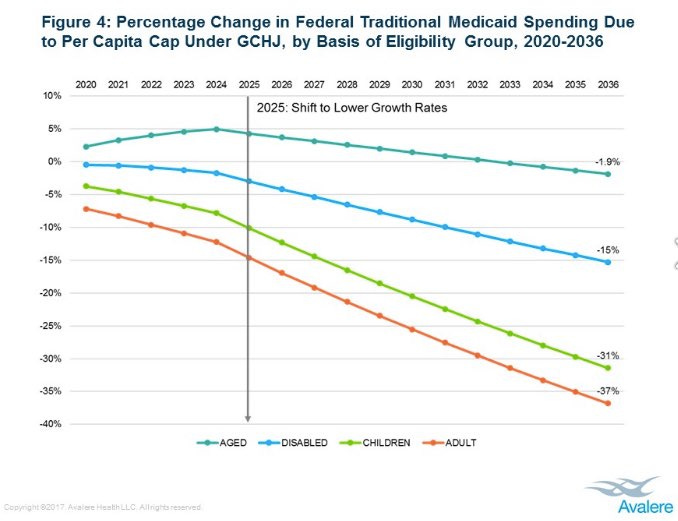
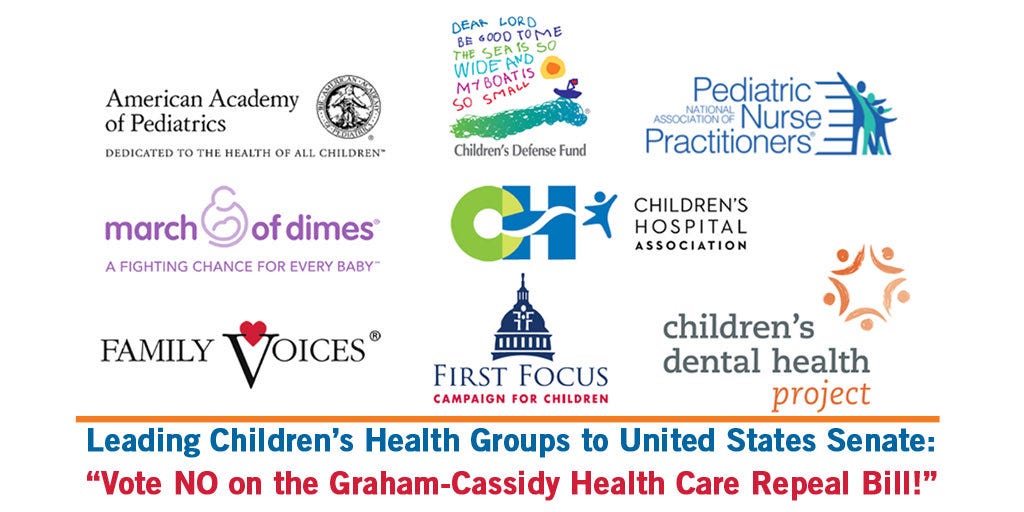
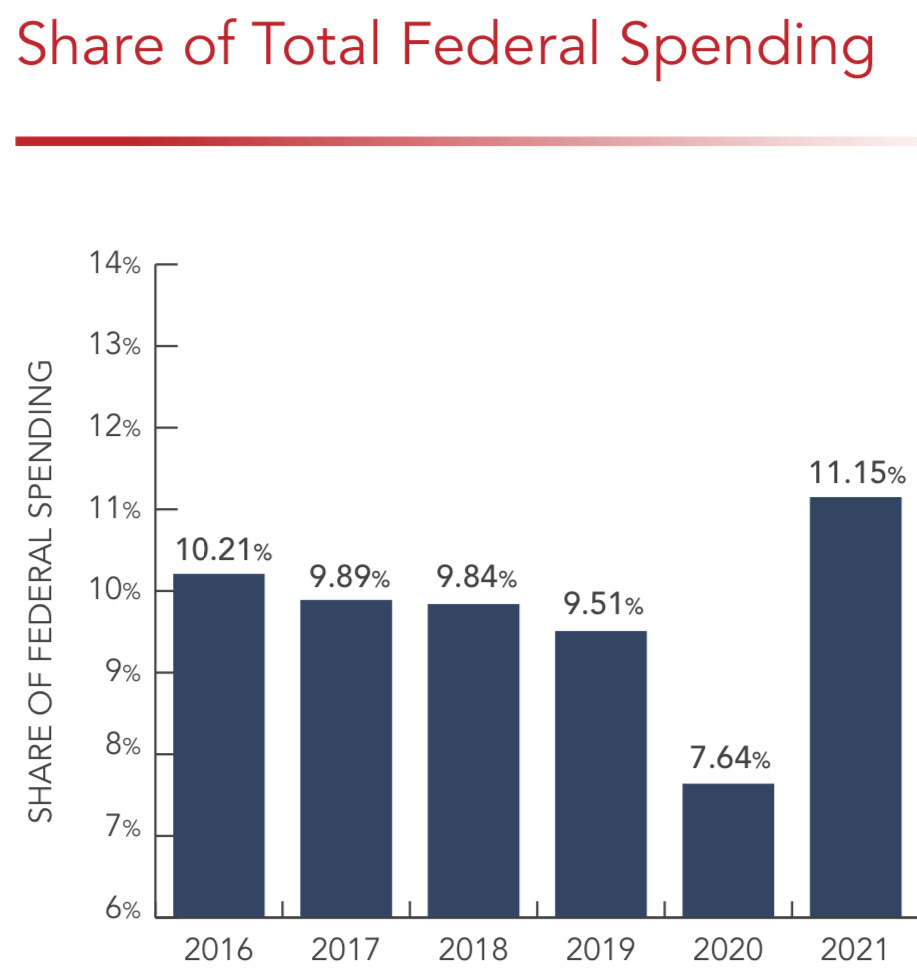




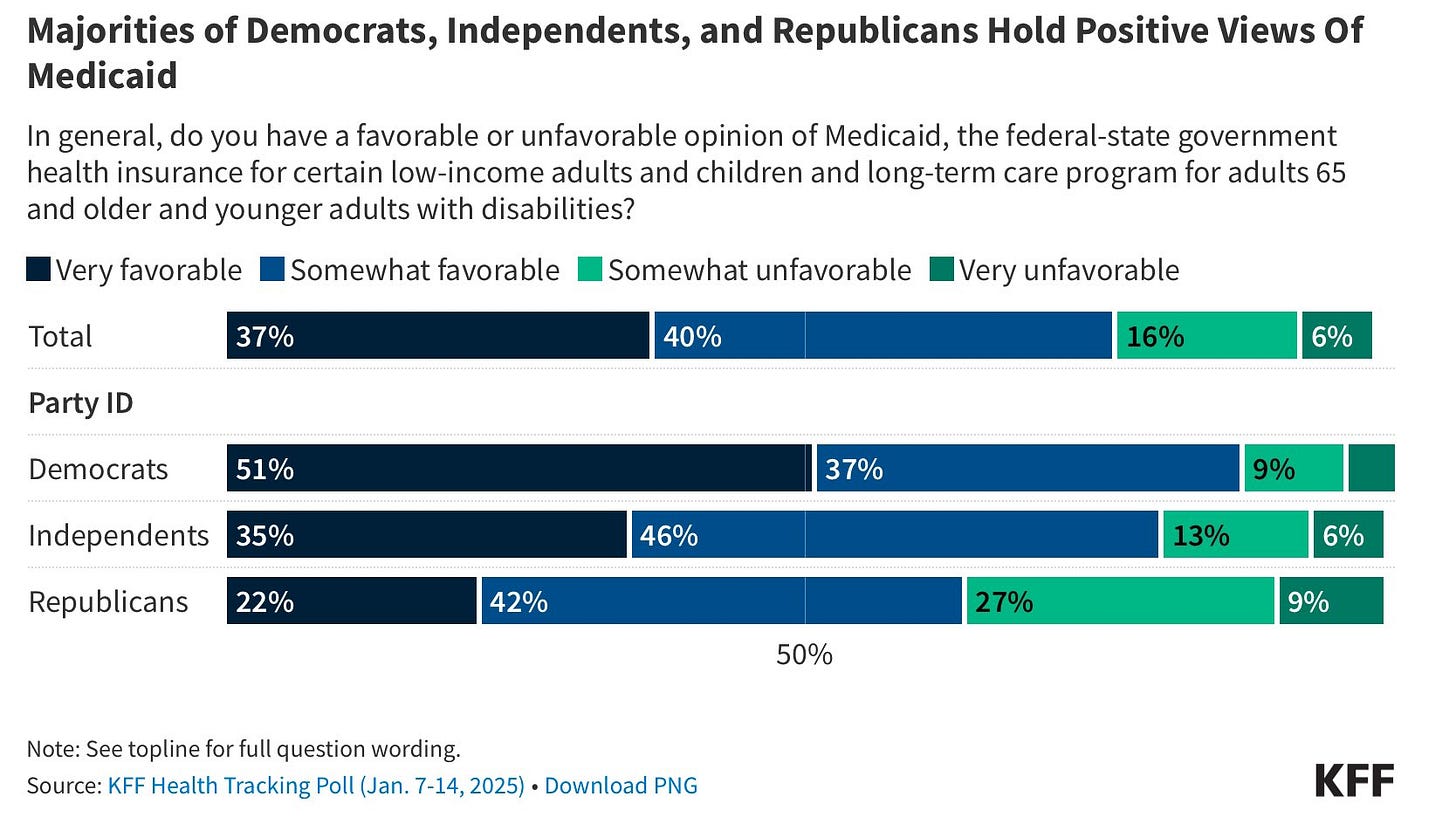

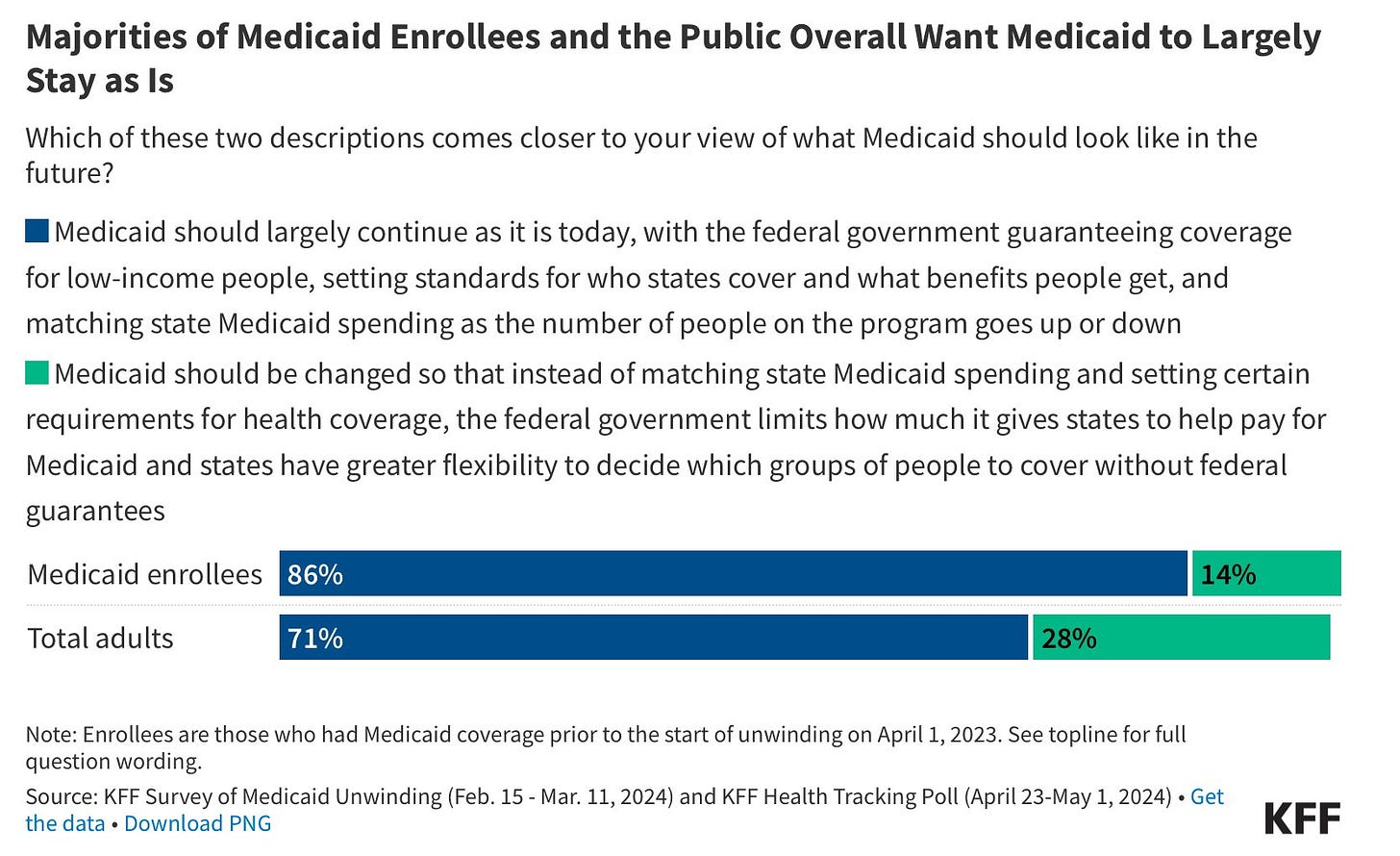

He's a TRUMPIST. When were they interested in anyone or anything that DIDN'T DIRECTLY AFFECT THEM ?